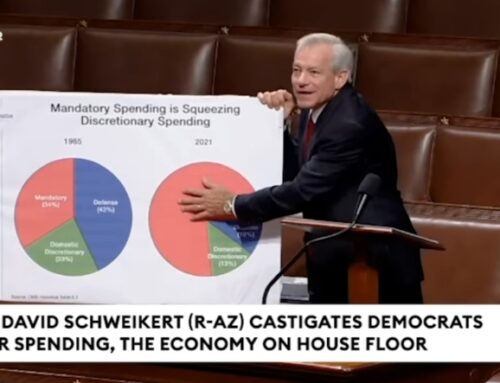It is so nice to be proven right through no effort on one’s part. In my last post, “Second Thoughts on Earmarks,” I said that it was relatively easy know who is requesting earmarks, and voila! Three groups are making that information available to all. According to the Washington Examiner, three groups; Taxpayers for Common Sense, WashingtonWatch.com, and Taxpayers Against Earmarks; analyzed the proposed 2011 omnibus spending bill and not only listed earmarks and their requesters, but also indexed the number and amount of the individual requests in order to identify the biggest spenders of both parties.
The good news is that Republicans, with certain notable exceptions, seem to be keeping their pledge to abstain from earmarks. Only four Republicans in the House requested earmarks, and two of those representatives will not be returning in the next session. Unfortunately, many of the Republicans in the Senate, while significantly less profligate than Democrats adding earmarks to an already bloated budget bill, need to show they are serious about reducing spending. They will have another opportunity when the revised budget is presented again to forego earmarks and be statesmen, not just politicians doing favors for the voters back home.
As citizens we need to do our part. Whether or not we have Republican or Democratic congressmen, we need to let them know that we are monitoring them and that they need to stop requesting earmarks. The Taxpayers Against Earmarks website, conveniently titled www.taxpayersagainstearmarks.com, has an extremely user-friendly map with all fifty states. All one needs to do is to click on his or her state, and one can easily find which senators and representatives attempted to spend how much money in earmarks. For Virginians, Senator Jim Webb requested almost 900 million dollars, and Senator Mark Warner over 600 million dollars. Together, that is over 1.5 billion dollars. I will be e-mailing them both today and writing a letter to the newspaper about their contributions to the deficit. We need to continue to let them know we are serious about reducing federal spending.





